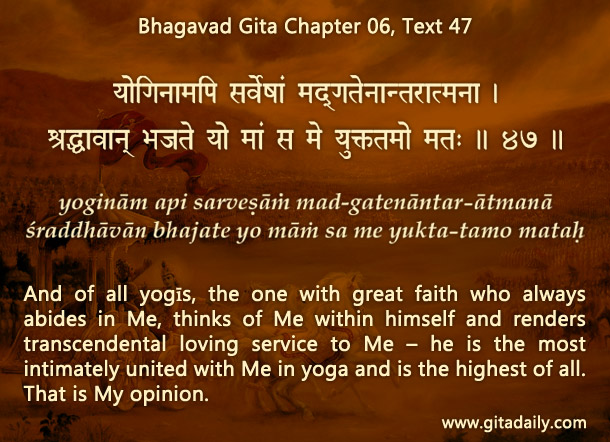Some people think that meditation refers to deep thinking about any subject.
While the word ‘meditation’ may be used thus in a conversational sense, meditation in a spiritual sense refers as much to the mode of thinking as to the object of thought. That is, what matters is not just whether we are thinking deeply, but also whether we are thinking about the deepest reality. Thus, meditation seeks truths beyond the surface, realities below the apparent, visions beyond the visual.
The reality perceivable to our senses is the physical reality made of gross matter. Deeper than this is the mental reality made of subtle matter. Deeper still is spiritual reality – our essential identity as souls. And deepest of all is the supreme spiritual reality, God, Krishna: He is the underlying, unifying principle of everything. Thus meditation in its most evolved sense refers to deep thinking about the deepest reality, Krishna.
Of course, the mode of thinking also matters. God, Krishna, being the supreme reality is greater than our finite capacity to conceptualize or intellectualize. So, we can know him only by his revelation, a revelation that he is pleased to bestow on us when we approach him with a devotional mode of thinking.
But the potency of this mode of thinking rests primarily in the divine object of thought. Thinking devotionally about any person other than Krishna won’t trigger sublime, spiritual revelations within us.
The Bhagavad-gita discusses meditation extensively in its sixth chapter, which is titled dhyana-yoga (the yoga of meditation). And this chapter culminates (06.47) in the unambiguous declaration that the topmost yogis are those who meditate on Krishna. Bhakti-yoga guides us to fix our consciousness on Krishna right from the beginning stages of spiritual life. Thus, it comprises the most efficacious meditation.
To know more about this verse, please click on the image
Explanation of article:
Podcast:


For meditation concentration of mind a must.Even a five minutrs timeline one can attain his spiritual goals